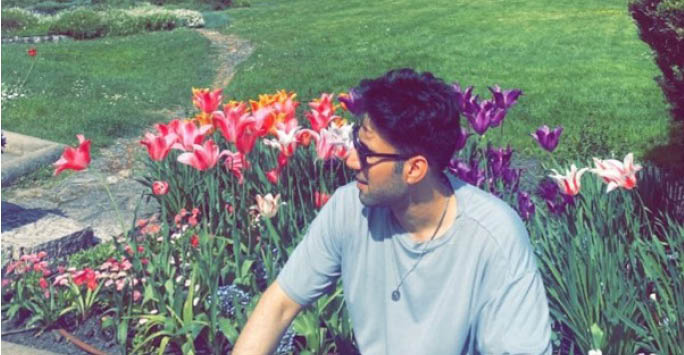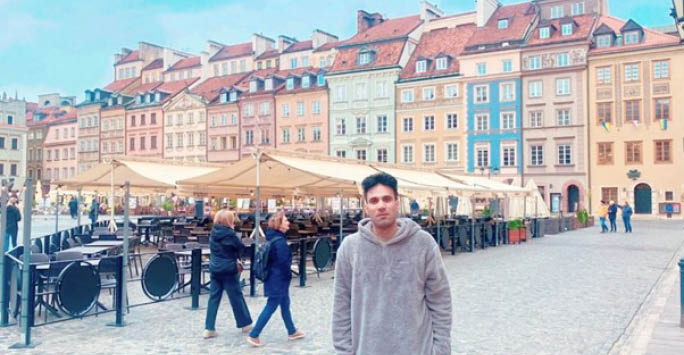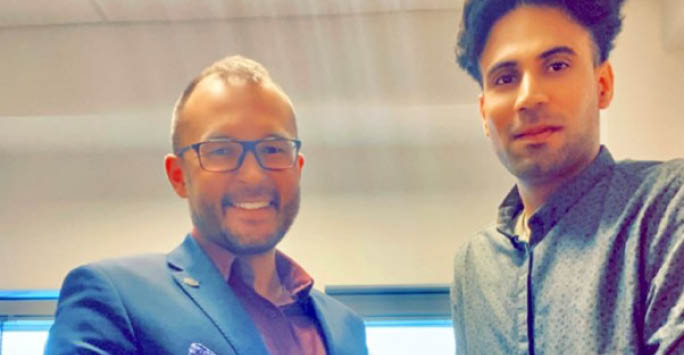
This research exchange is part of a partnership between the University of Liverpool and the University of Warsaw, aimed at strengthening cooperation and developing realistic collaboration programs between the University of Warsaw and its partner institutions.
I was delighted to be selected as the only PhD student representing the University of Liverpool to receive a fully funded and paid fellowship for doctoral students and young scientists at the University of Warsaw.
My research focusses on the intersection of law and technology, and this fellowship provided a unique opportunity to enhance research capacity in this area across both institutions. Specifically, I worked on comparative research on macroeconomic policy towards technology in the UK and the European Union. My supervisor at the University of Warsaw, Professor Jakub Gorka, and I had planned to utilise this research exchange to co-author an article, which we aim to submit by the end of this year. It was gratifying to see our efforts come to fruition.
While in Warsaw, I was based at the Faculty of Economics and Finance, where I had access to extensive resources, including the law library and online materials. My work focussed on technology and economic research, and I collaborated on a project examining payment systems and macroeconomic policy. This project contributes to one of my PhD thesis chapters and lays the foundation for my joint research paper with Professor Gorka. My supervisor was incredibly open and receptive to my ideas, and our discussions helped refine our original concept. Her support was invaluable, especially when we ventured into areas outside my comfort zone, such as corporate and macroeconomic policy and Central Bank Digital Currencies (CBDCs) in the Eurozone. This experience expanded my academic horizons and fostered personal growth as I learned to navigate new research areas and collaborate effectively in an international setting.

Studying at the University of Warsaw allowed me to leverage my supervisor’s expertise and further develop my research areas. This exclusive research opportunity, funded by the fellowship, enabled a fruitful collaboration that combined Fintech and economics with technology and economic laws. Our article, currently in the research stage, has generated exciting research outcomes, such as analysing current projects on CBDCs in their pilot stage and the pros and cons of wholesale and retail CBD models. Additionally, my supervisor’s insights on European Union economic policy and new regulatory technologies like Artificial intelligence and digital currency have been crucial for my thesis chapter on the macroeconomic policy implications of CBDCs. This interdisciplinary context has significantly enriched my PhD project, which spans various legal disciplines.
Moreover, my experience at the University of Warsaw offered a fresh perspective on my degree subject, highlighting how different approaches and studies enhance our literature analysis. Although Europe and the UK share similarities, I found the study and research culture at the University of Warsaw quite distinct from that of British institutions, particularly regarding engagement between students and research supervisors. My supervisor’s reflections on our comparative research and teaching experiences provided a deeper understanding of European institutional priorities. This fellowship, therefore, offered a valuable opportunity to learn about international research environments.
I also had the chance to network with law, finance, and technology professionals, enhancing my professional awareness through conference meetings and intellectual exchanges. For instance, I had the opportunity to engage in a networking event of European bankers and EU commission members on the payments system in Poland, discussing future digital currency and payment models. This development helped me to get in contact with future collaboration opportunities after my PhD. My research on blockchain-based CBDCs investigates their potential to create a more financially inclusive and sustainable monetary system. This thesis builds on understanding the current landscape and discussions surrounding CBDC implementation, exploring its implications for financial inclusivity, privacy, and security. The European dimension of economic policy towards technological advancement has provided me with practical experience, particularly for addressing inclusivity and sustainable economic analysis in my thesis.

My academic experience at the University of Warsaw was exceptional, and I highly encourage others to seize such opportunities. If you’re considering applying for this fellowship, here are three top tips: Firstly, find a suitable supervisor. The right one will ensure an incredible experience. I was fortunate to have Professor Kanstantsin Dzehtsiarou from the University of Liverpool help me select the perfect supervisor for my thesis and research exchange at the University of Warsaw. Secondly, handle administrative tasks before you go, including securing access cards and accommodation at the University of Warsaw. Finally, immerse yourself in Poland's culture and East European Slavic hospitality and explore nearby European countries—it’s a fascinating and enriching experience.